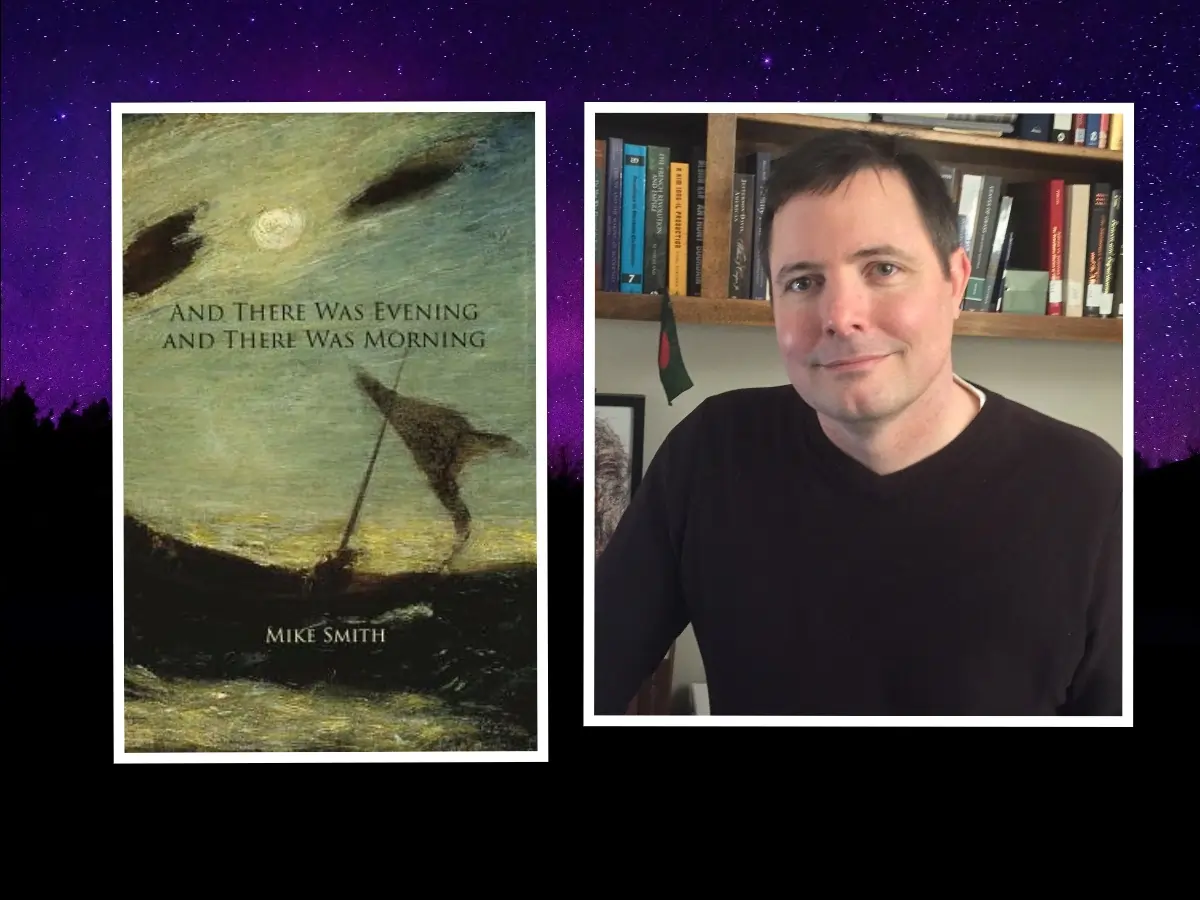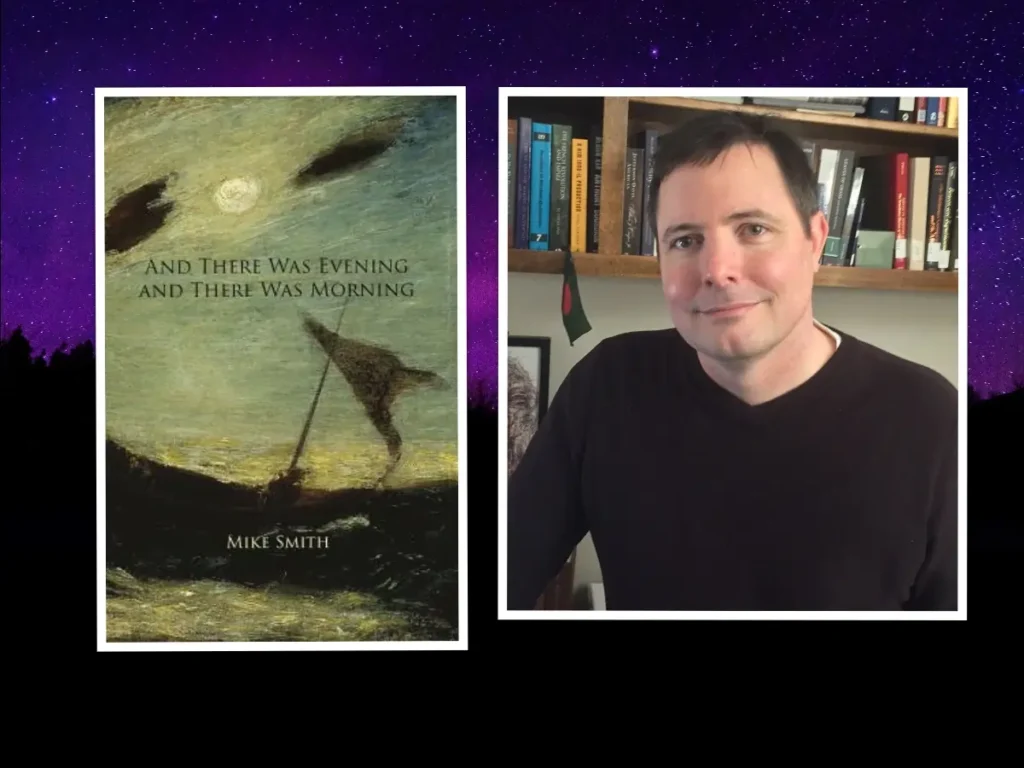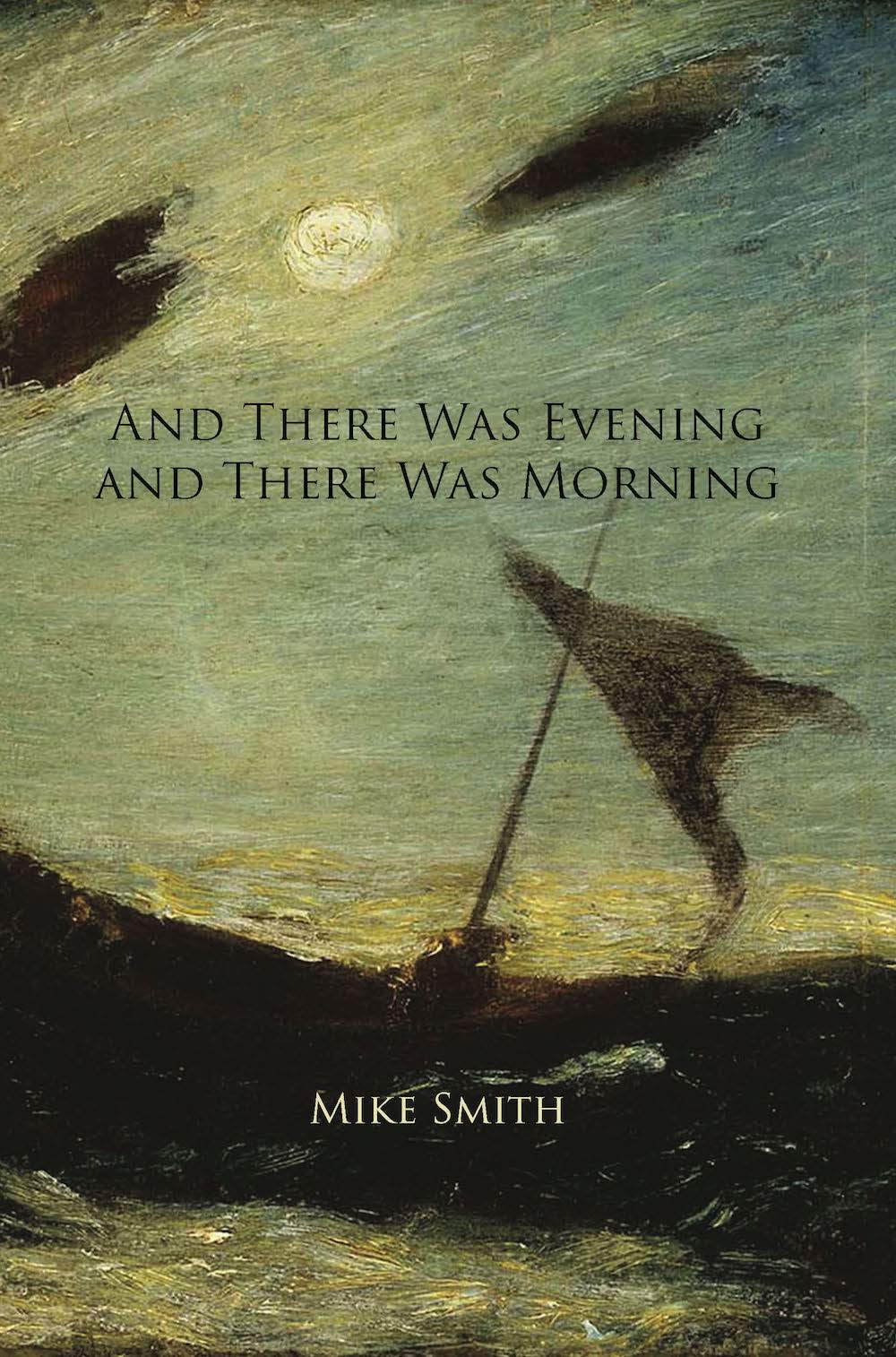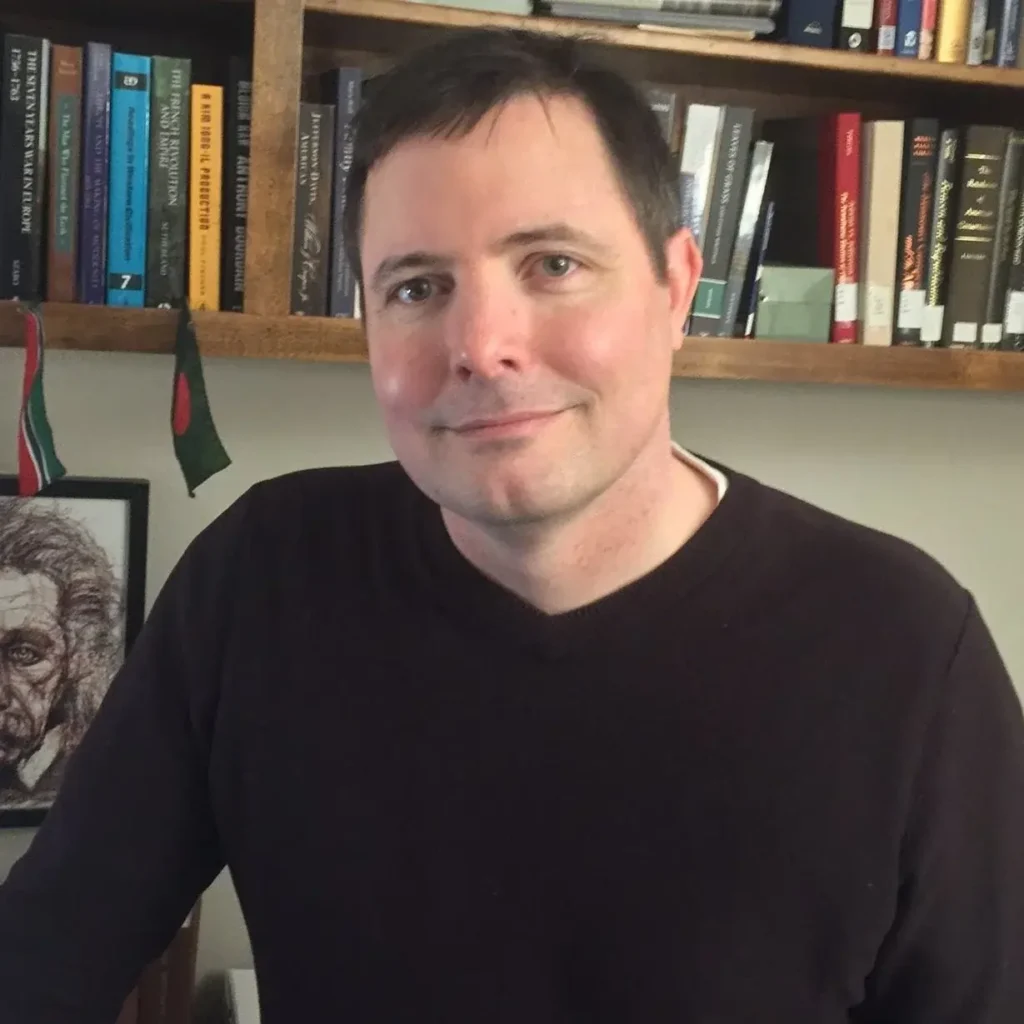For this week’s Litstack Rec, we’re revisiting And There Was Evening And There Was Morning, a gorgeous debut memoir reviewed here when it was released in 2017.
In This LitStack Rec:
Naming Your Pain
“Mourning,” Hilary Mantel wrote, “is work. It is not simply being sad. It is naming your pain. It is witnessing the sorrow of others, drawing out the shape of loss.”
Who among us, when grieving, is willing to examine those contours and shadows? In his nonfiction debut, And There Was Evening And There Was Morning: Essays on Illness, Loss, and Love, from WTAW Press (September 2017), poet Mike Smith undertakes the work Mantel describes. The memoir-in-essays centers on his late wife, Emily Arndt, who at age thirty-six, three weeks after the birth of their second child, was diagnosed with Stage IV breast cancer, and died four months later.
Grief that Questions Everything
These fifteen essays chronicle illness, loss, and love. They also look at family, place, spiritual thought, and the sustenance of faith. When Arndt was diagnosed, she had just completed her first year as an assistant professor of Theology at Georgetown University, and published her first book—Demanding Our Attention: The Hebrew Bible as a Source for Christian Ethics—though its publication wouldn’t come until nearly four years later. As he grieves, Smith questions almost everything, including his faith, and his inquiry frequently refers to his late wife’s ideas and insights on God and belief systems.
Smith retraces Arndt’s life and work, and his role as her husband, caregiver, and champion. We learn of the couple’s relationship, from their meeting as co-workers in a Washington, D.C. bookstore, to marriage, children, and their lives spent teaching, reading, and writing. We follow Emily’s diagnosis, treatment, and the emotional roller coaster of the good and bad days to those terrible final weeks. And yet the memoir shows the family’s hope and survival, as Smith, with his two children (Virginia, five years old, and newborn Langston), find ways to move forward. His remarriage to Jennifer, a recently-divorced mother of three, evolves from a friendship, when she offers Virginia a standing play date with her son, William.
Litanies of Bereavement
The memoir opens with the essay, “My Emilys” a reference to both Emily Arndt, and a second Emily. Smith is now remarried, and the blended family has relocated to Mississippi where he’s teaching at Delta State University. Jennifer’s middle daughter, eleven-year-old Emily, has been hospitalized for mononucleosis, and an ultrasound has revealed ovarian cancer. Smith has said the genesis of the book began with his stepdaughter’s diagnosis, the same day a just-published copy of Arndt’s book unexpectedly arrived in the mail:
“One of the central motifs of my memoir is that my first wife’s book became for me, in the turmoil and trauma of my blended family’s difficult first year, a guidebook and abiding source of solace.”
Smith, who currently directs the Honors Program at Delta State, is a poet and translator whose previous books include the poetry collections Byron and Baghdad and Multiverse (BlazeVox Books), and a translation of the first part of Goethe’s Faust (Shearsman Books 2012). And There Was Evening And There Was Morning is his first work of prose—and one of WTAW Press’ first two inaugural books.
“This gravity of grief still pulls at me, as if I might swallow myself,” he writes, and one of the feats of this collection is its tone, which is both questioning and candid. The narrator’s voice moves between intimacy and objectivity, as in the portrayal of Virginia’s first day of kindergarten. Her mother has been hospitalized for the first time since the diagnosis, and before going to school, poses for a photograph, her hands “clasped in front of her as if she were a care-worn grandmother.”
In that essay, “Whispers of Gratitude and Praise,” Smith retraces Arndt’s final days, and the days that follow, as he moves through the rituals of mourning. He writes notes to friends and family who helped during Emily’s illness and death. He reads books on grief, and well-intentioned gifts from friends he refers to as “litanies of bereavement,” such as Joan Didion’s Year of Magical Thinking and an anthology of Japanese death poetry.
Later, Smith writes, “I couldn’t read them all, but kept them anyway. Even now, I’ll come upon one while scanning a shelf and my mind will snap back to the time I received it. Time travel of a sort: for an instant, I am completely there, returning to the smells, discomforts, and the hold tugging hollowness in my belly of those moments.”
As Smith begins a new life in his second marriage, grief returns at unexpected moments. His teaching year ends a month before his family’s, and he uses the time to write at home, but is often inclined to spend the days in “a private ritual,” walking through the rooms of the house, taking emotional inventory of the spaces where there is evidence of the present and the past. That essay, “Claiming Space,” brings home the tensions and the persistence of grief, especially as it resides in objects that evoke other places, and other times.
Hallowed ground. Will I find it in the actual places of Emily’s past or the things that survive to give these new spaces contour and color
Mike Smith, And There Was Evening And There Was Morning
Virginia’s grief for the mother she’s lost is one of the book’s more heart-rending portrayals. Playing a role in a school production of Thornton Wilder’s Our Town becomes the means, at age eleven, for her own contemplation of loss. Reading the script, she comes across the Stage Manager’s line, “…the dead don’t stay interested in us living people for very long. Gradually, gradually, they lose hold of the earth.”
The idea contradicts Smith’s carefully chosen assurances, and in the weeks before the performance, Virginia is despondent. Then, on December 1, the anniversary of her mother’s death, Smith takes her out for fried ice cream. “Working through grief is lonely work,” he writes, “even if your closest are grieving also. I don’t think the fried ice cream helped, but eventually Virginia became again her usual indomitable self.”
Becoming Something New and Whole
A similar hopefulness runs in “There We Are.” After Emily’s death, as Smith relocates to Raleigh, North Carolina, to be nearer to family, he often feels “more borne by life than bearing it.” A year later, when he meets Jennifer, their friendship develops to courtship. And when his teaching position at Delta State comes through, the couple’s path forward becomes clear. Jennifer readies her house for sale, and one day, when the children help pull weeds on the brick patio, Smith describes the scene as “two families broken apart, working hard at becoming something new and whole”:
The work was hard and gritty, smack dab in the middle of summer. Though it was late, the bricks were still warm from the sun and the dirt packed and dry…the hose and water brightened everything it hit, the bricks, the dirt, and, inevitably, our seven glistening selves.
Mike Smith, And There Was Evening And There Was Morning
Of Smith’s memoir, poet Tony D’Souza said, “The book is a stunned, out of body experience,” and of the author, “Smith, a reflective and precise writer, invites us to walk each step with him as his heart is annihilated by the sort of tragedy we beg, beg God will never come our way.” Mike Smith’s precise drawing of mourning, and love, make this an essential read, a work of solace and a testament to both darkness and light.
Learn more about Mike Smith’s memoir, here. And learn all about the newest programs and opportunities for writers at WTAW Press here.
—Lauren Alwan
Other LitStack Resources Related to this LitStack Rec
Be sure and check out our other LitStack Recs, and click here to read about another WTAW Press release.
As a Bookshop, Amazon affiliate, LitStack may earn a commission at no cost to you when you purchase products through our affiliate links.





